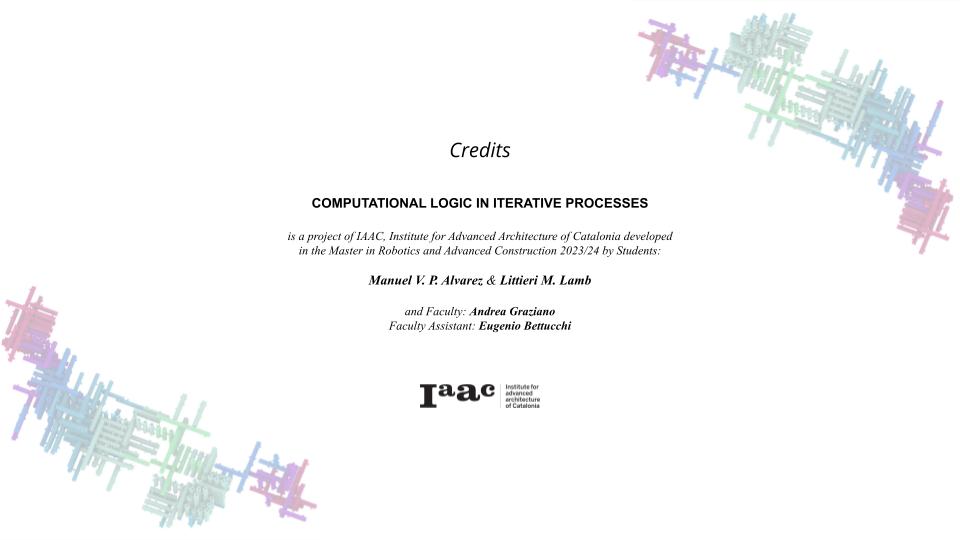Computational logic in iterative processes is a fundamental concept in computer science and programming. It involves using logical reasoning and decision-making within the context of loops or repeated operations. Iterative processes are commonly used to perform tasks that require the same or similar computations to be executed multiple times. Iterative processes are at the heart of programming, serving as a key approach for solving real-world problems that require repetitive actions. Computational logic provides the foundation upon which these processes rely, ensuring their efficiency, accuracy, and adaptability to diverse scenarios.
COMPONENTS:
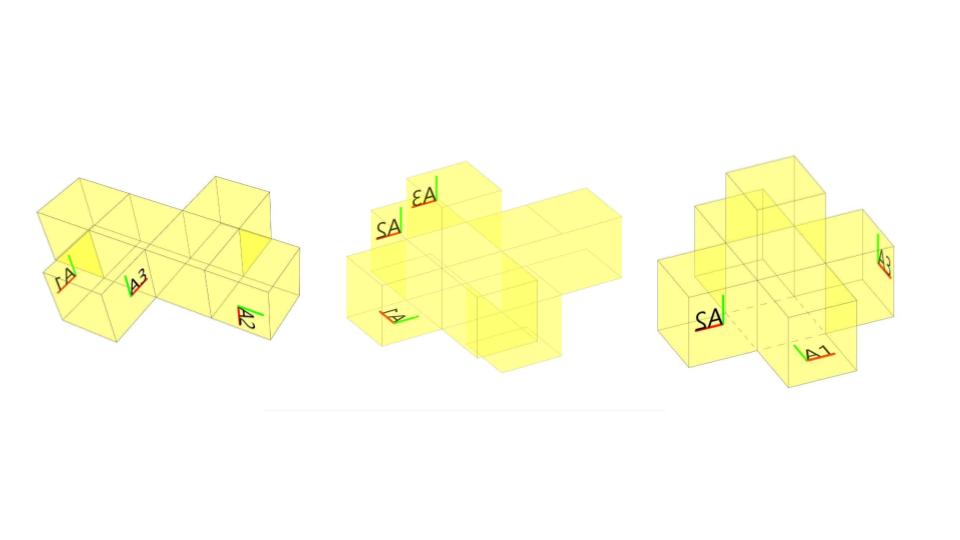
CATALOG OF PERMUTATIONS:
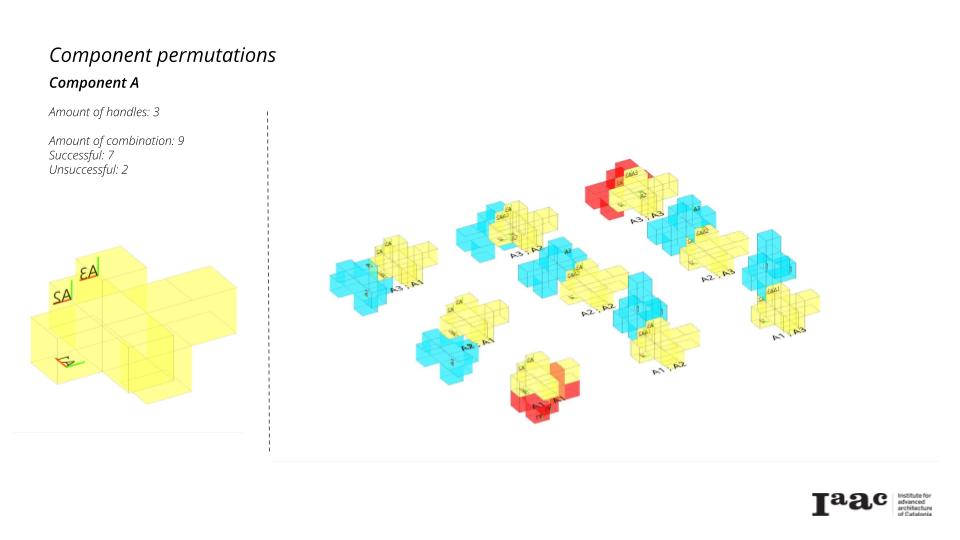
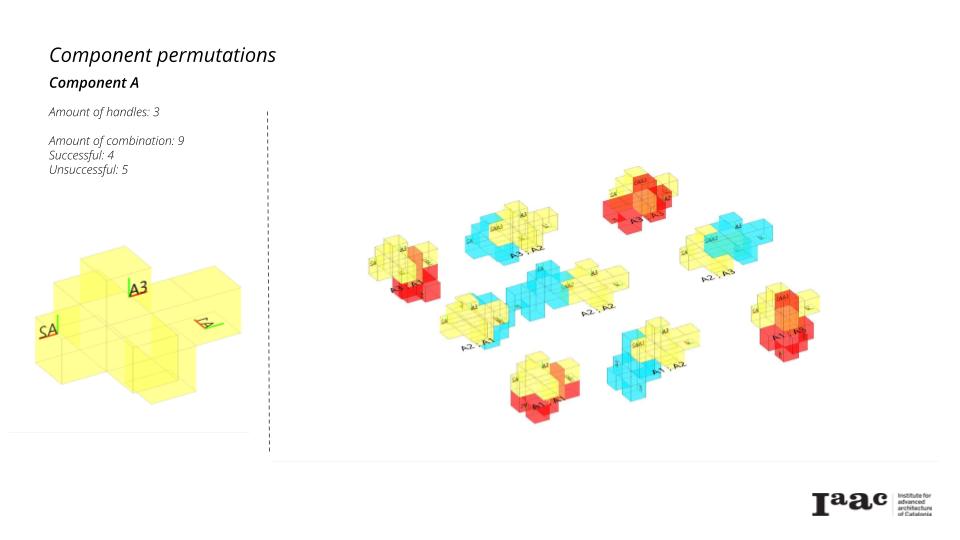
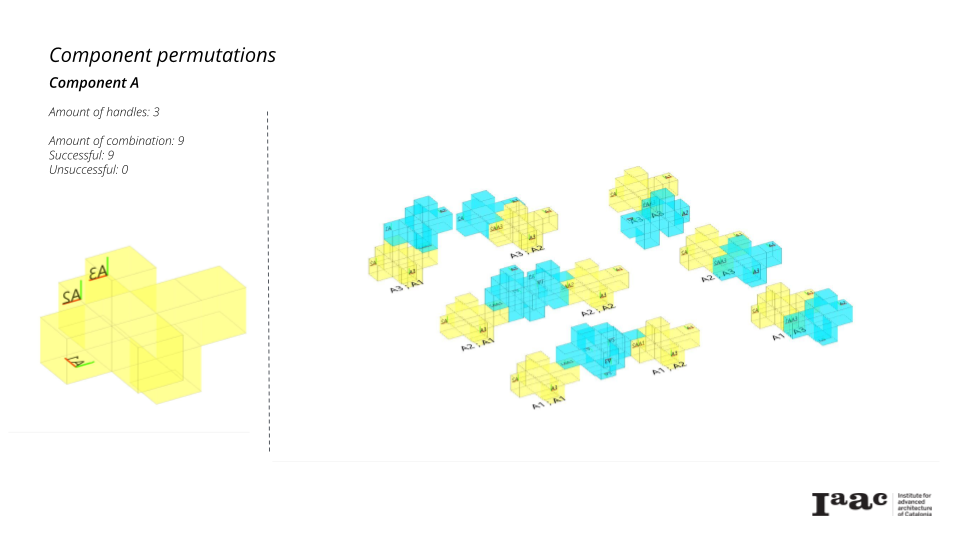
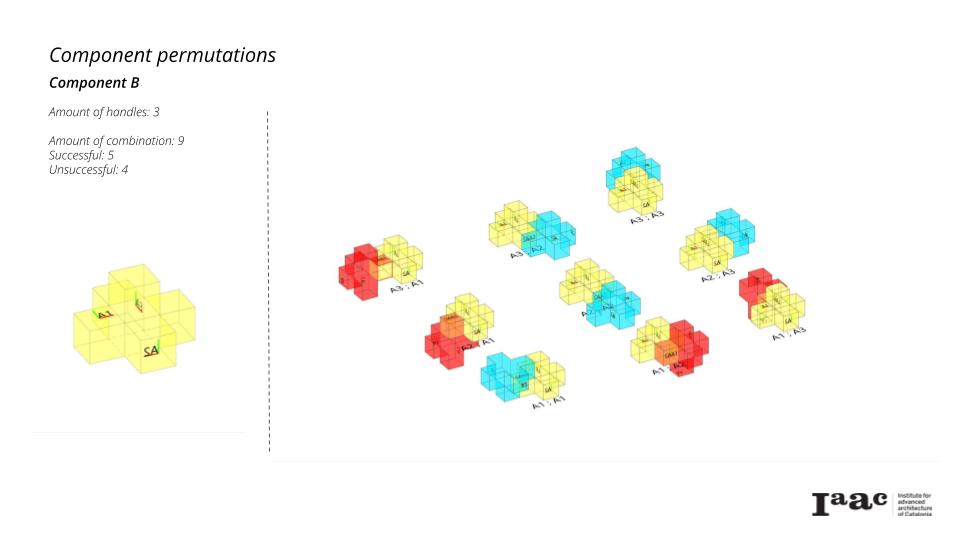
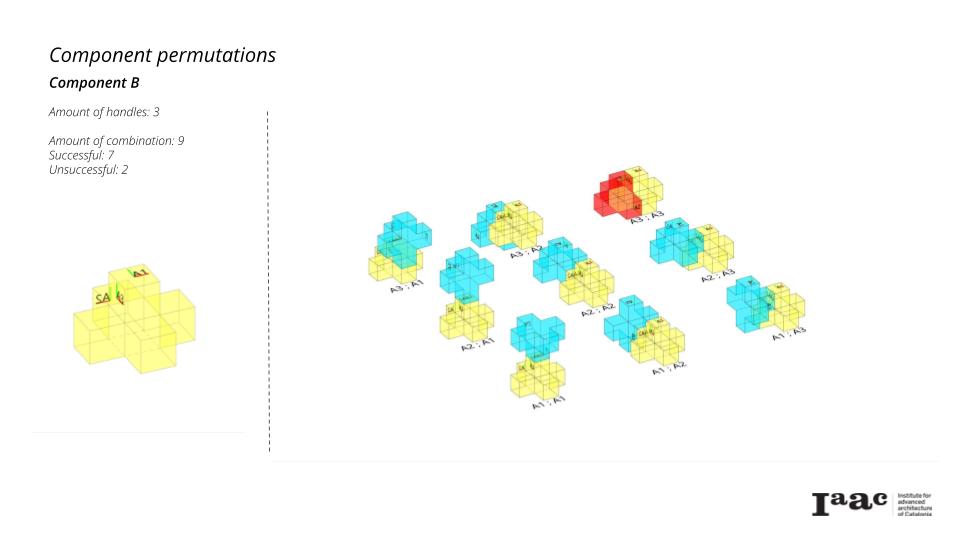
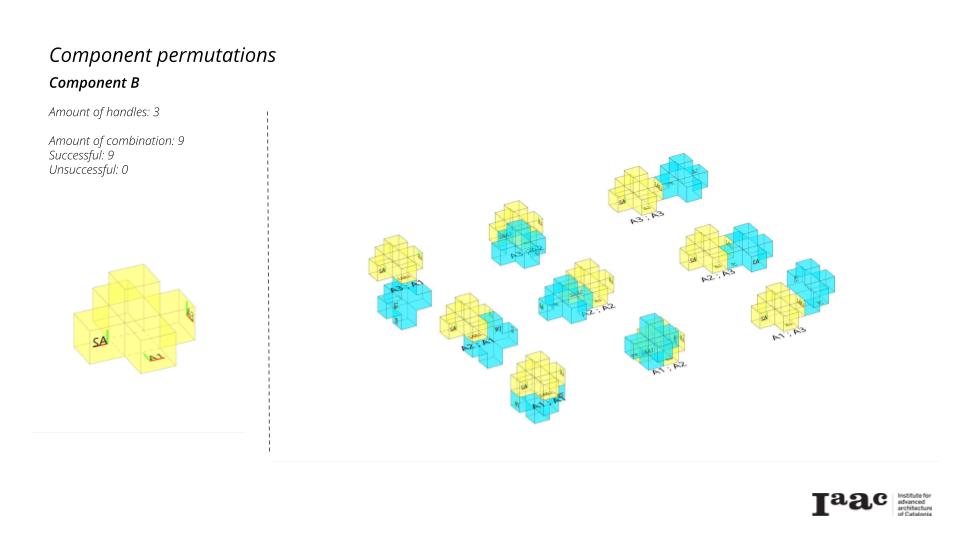
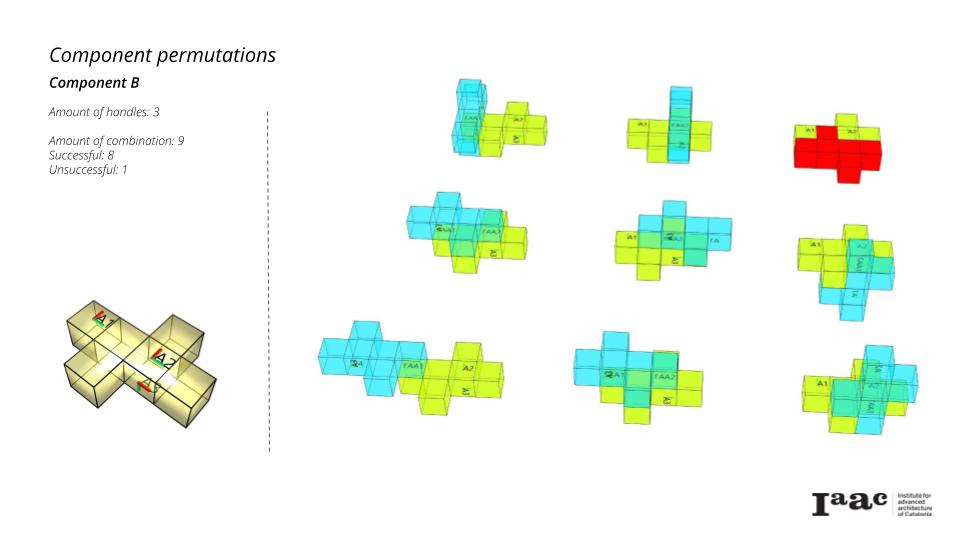
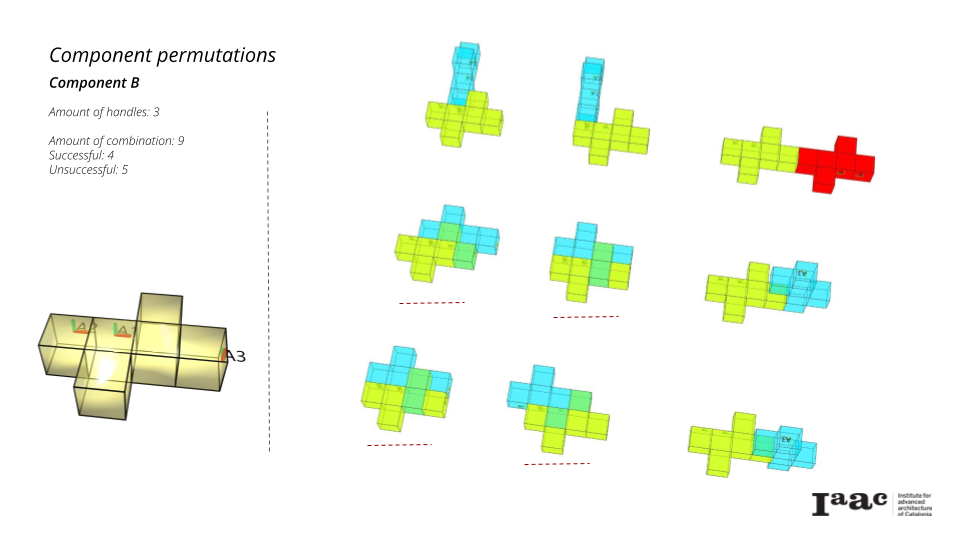
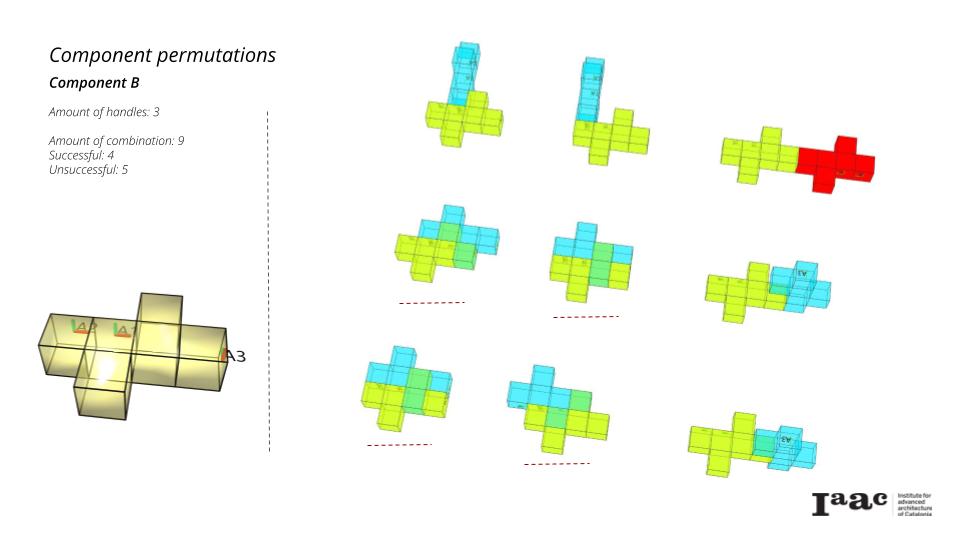
ASSEMBLAGE:
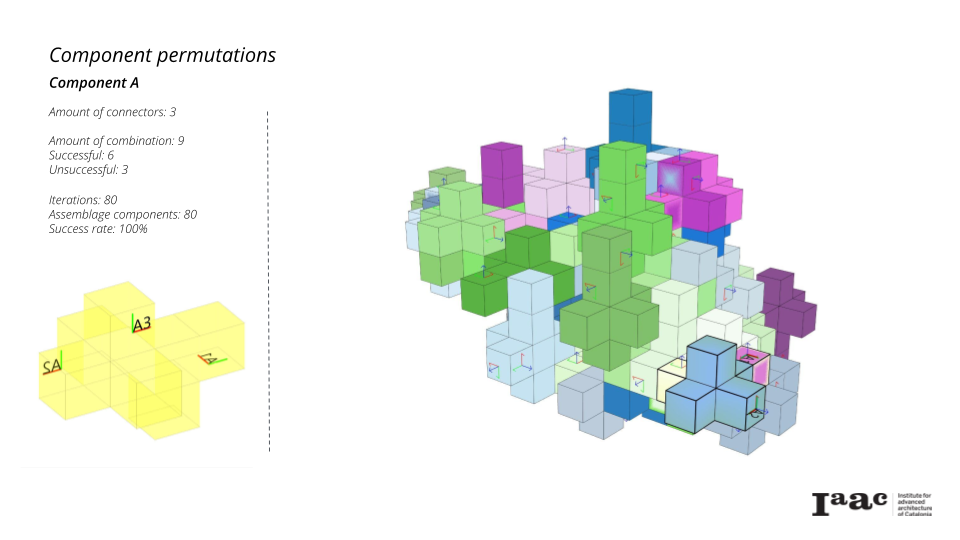
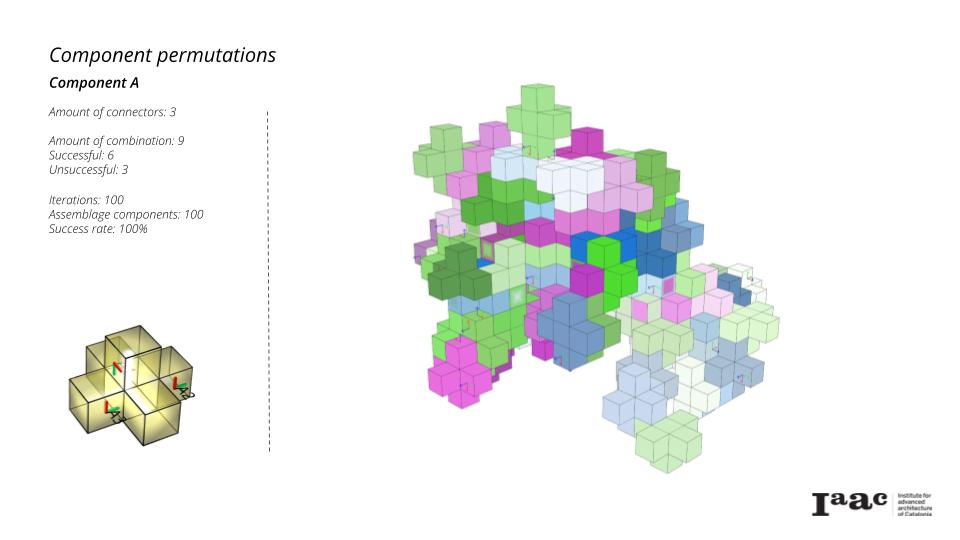
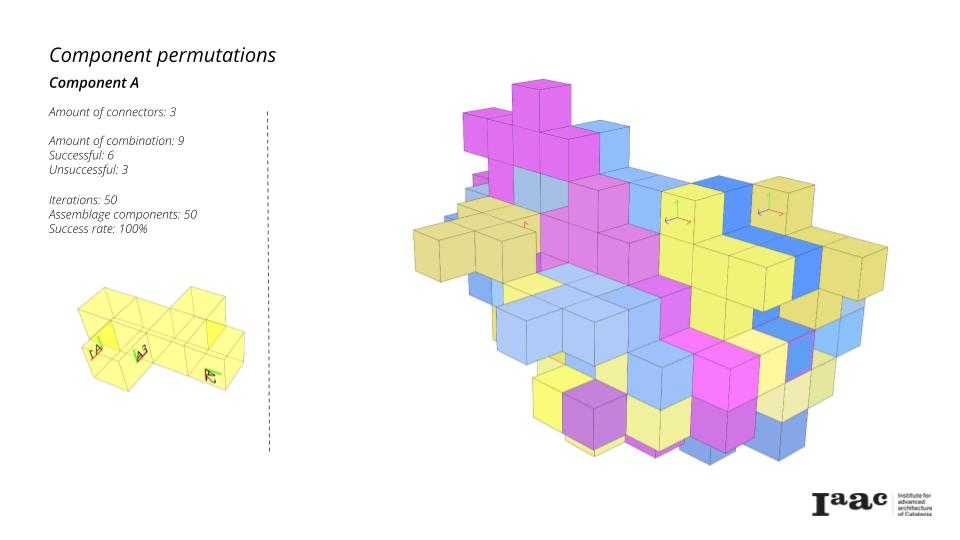
PERMUTATIONS THROUGH ROTATION:
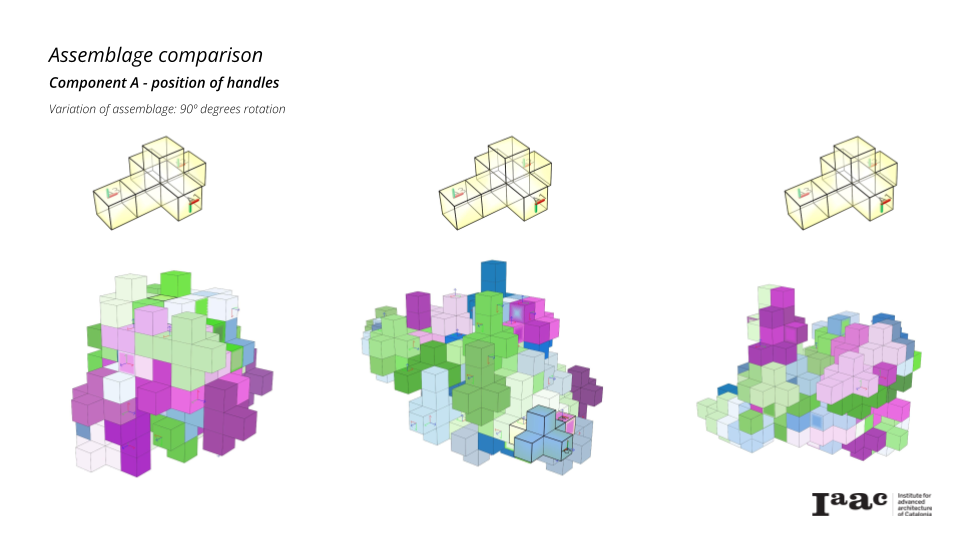
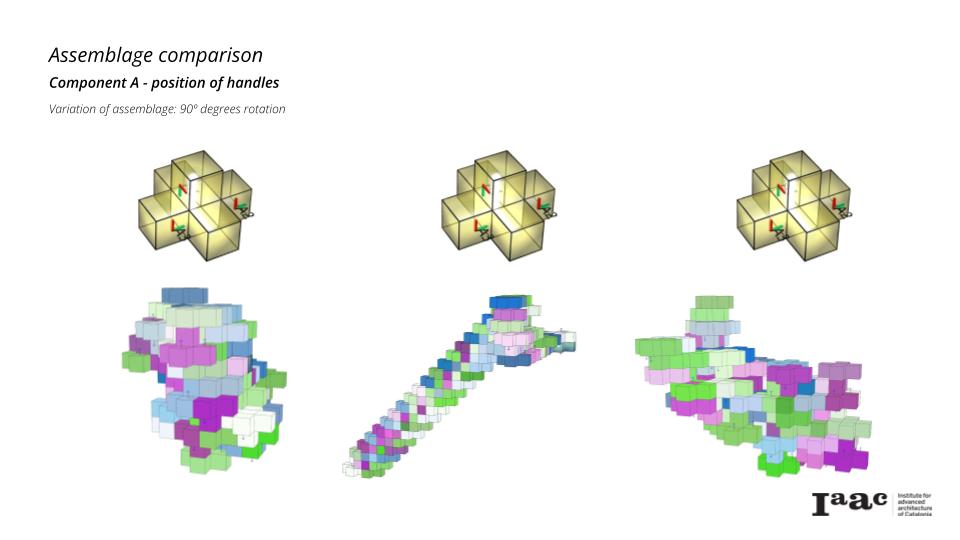
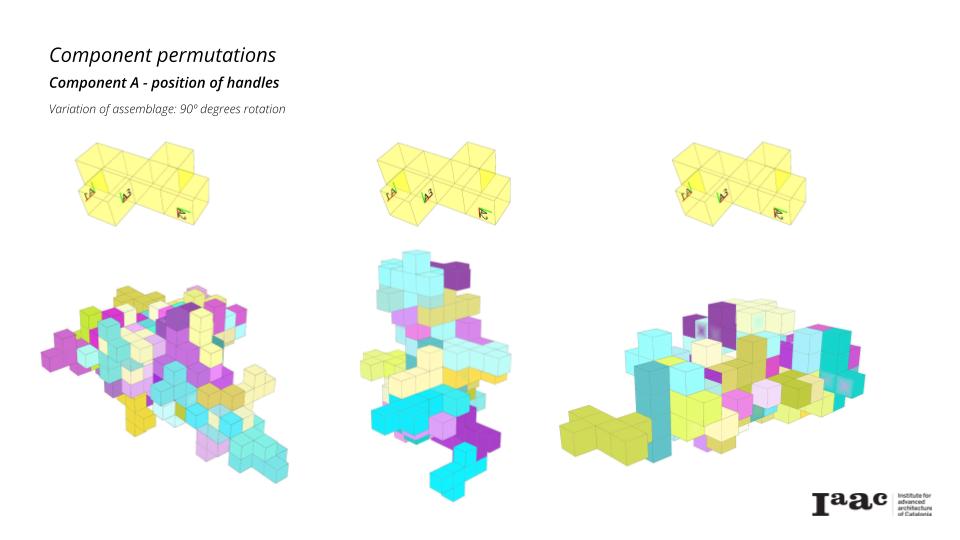
PERMUTATION THROUGH PLANE SHUFFLING:
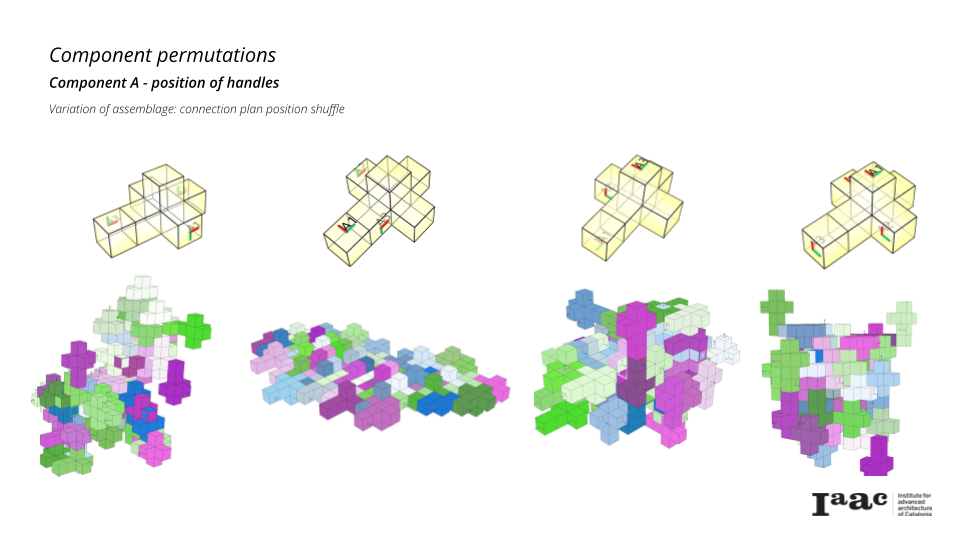
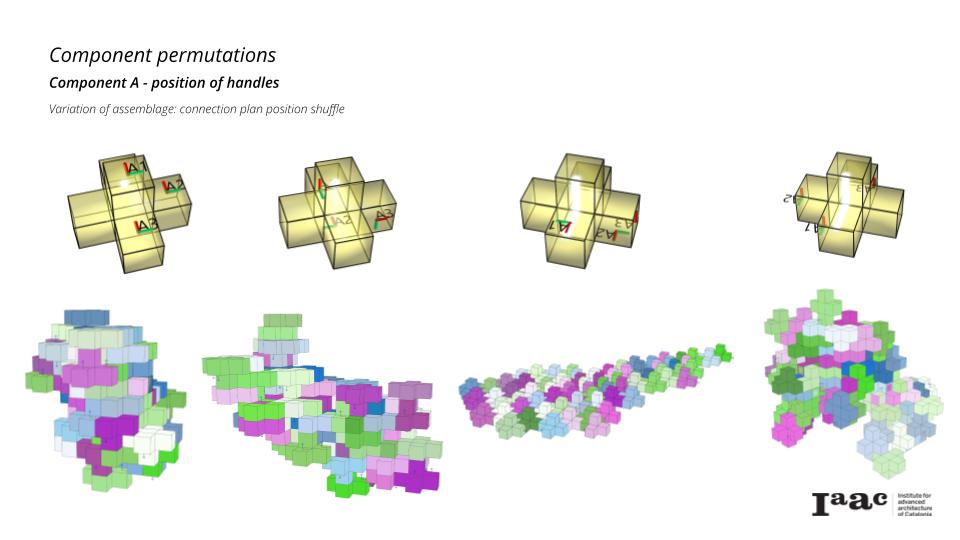
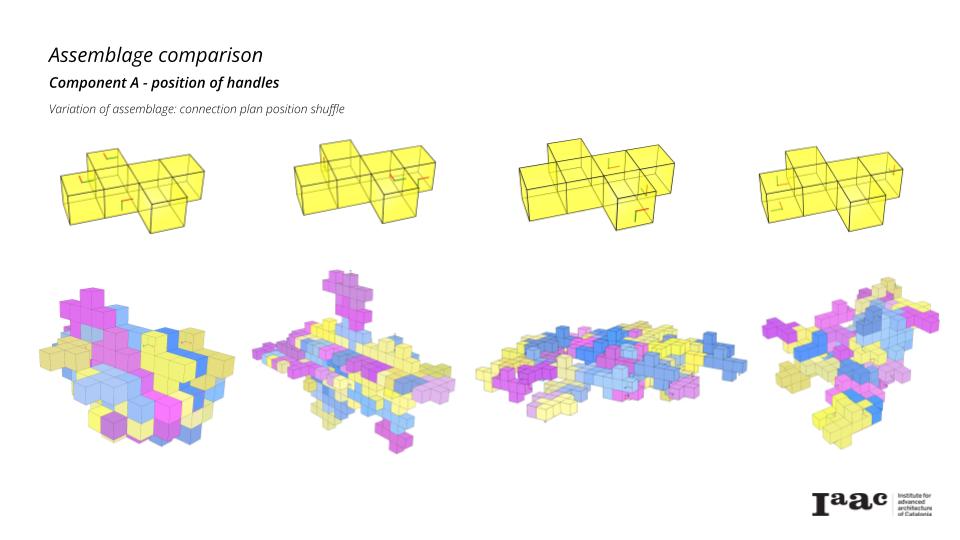
Loop Control Structures: Iterative processes are typically implemented using loop control structures in all programming languages. These loops allow you to define a block of code to be executed repeatedly until a specified condition is met. Grasshopper belongs to visual programming and iterates the loops using plugins such as “Anemone”
Logical Flow: Logical flow within iterative processes is imperative. It encompasses steps like initialization, condition testing, decision-making, and state updates. A well-structured logical flow ensures that the iterative process progresses systematically toward its objective. The logic flow specific of this task was split in 3 sets of operations along 300 iterations: iterations from 0 to 25 acted on distributedness, iterations from 26 to 200 acted on attraction curve and iterations from 201 to 300 acted on horizontal connections (avoiding z axis).
Optimization: Efficiency is a significant concern in computational logic within iterative processes. It is essential to optimize these processes to minimize computational complexity and eliminate redundant work. One common strategy is the use of data structures that enable efficient look ups, insertions, or deletions. For instance, eliminating the occluded planes where connection between elements is not possible anymore, as well as collision check between elements.
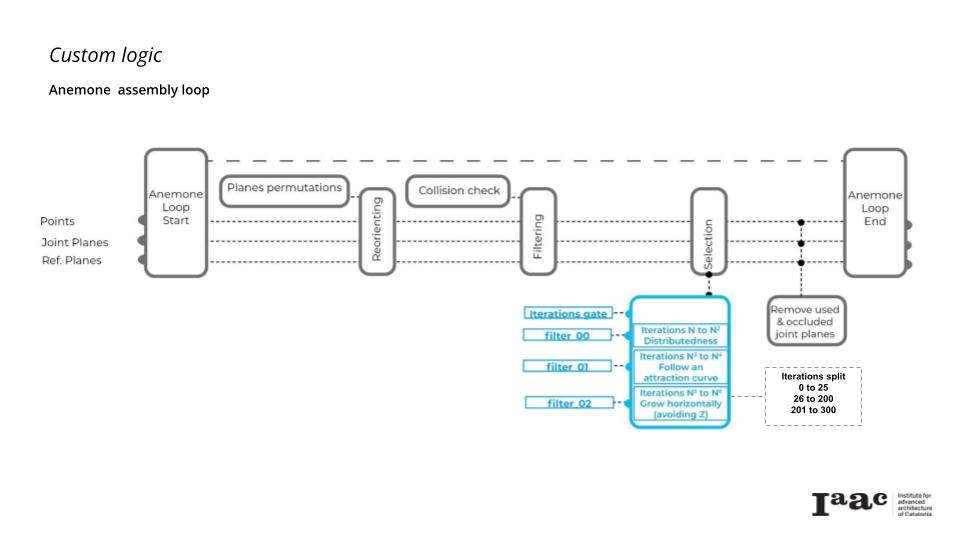
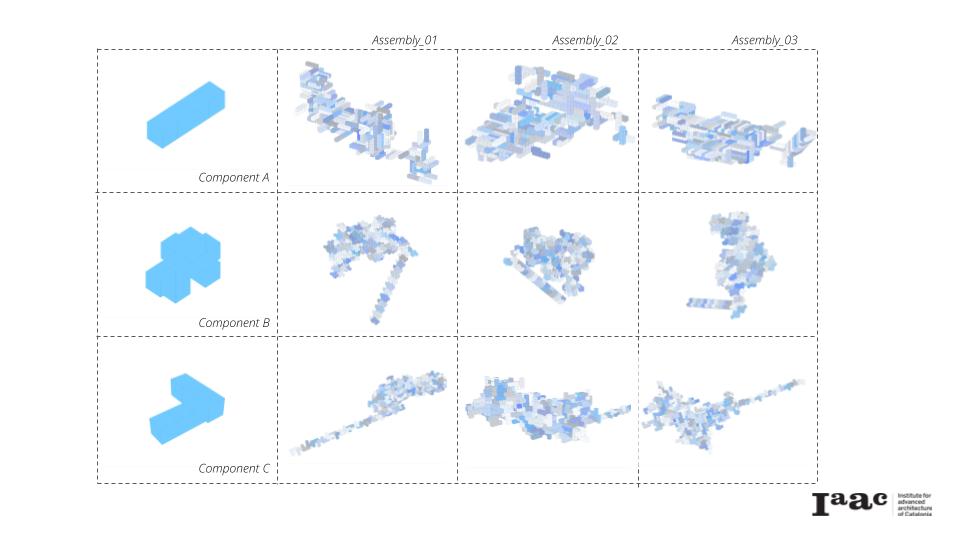
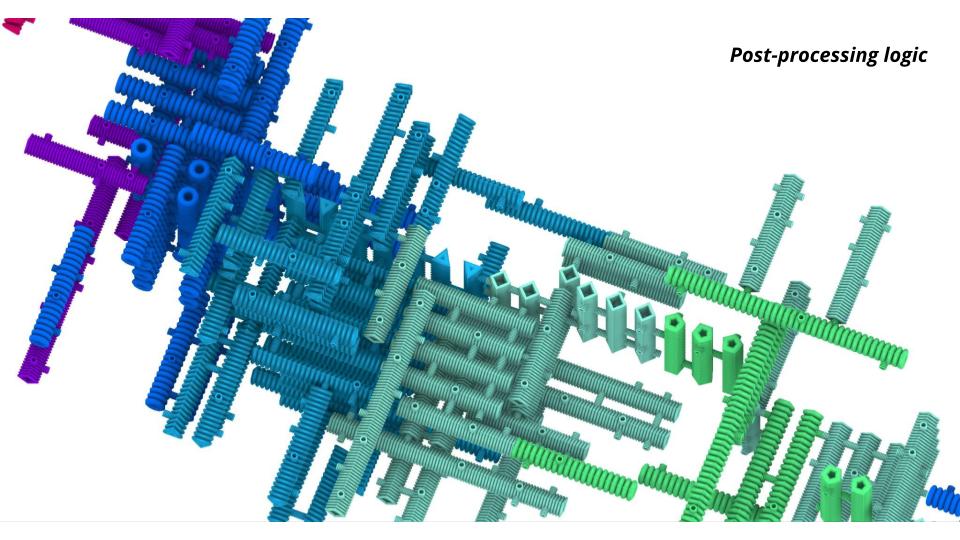
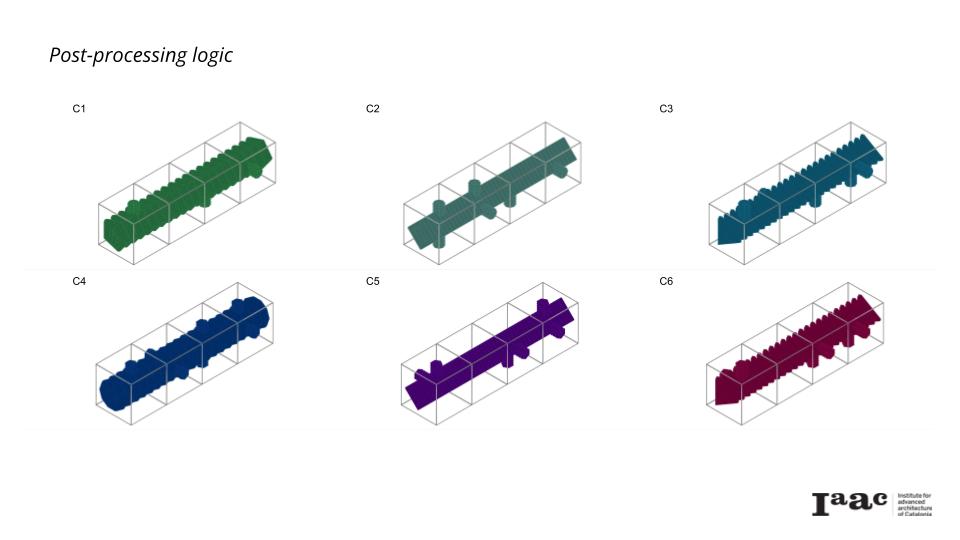
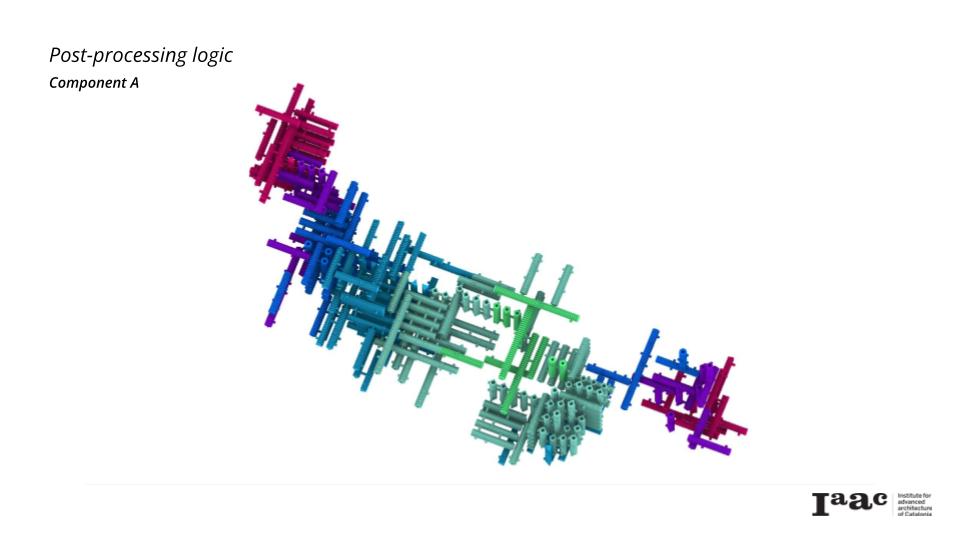
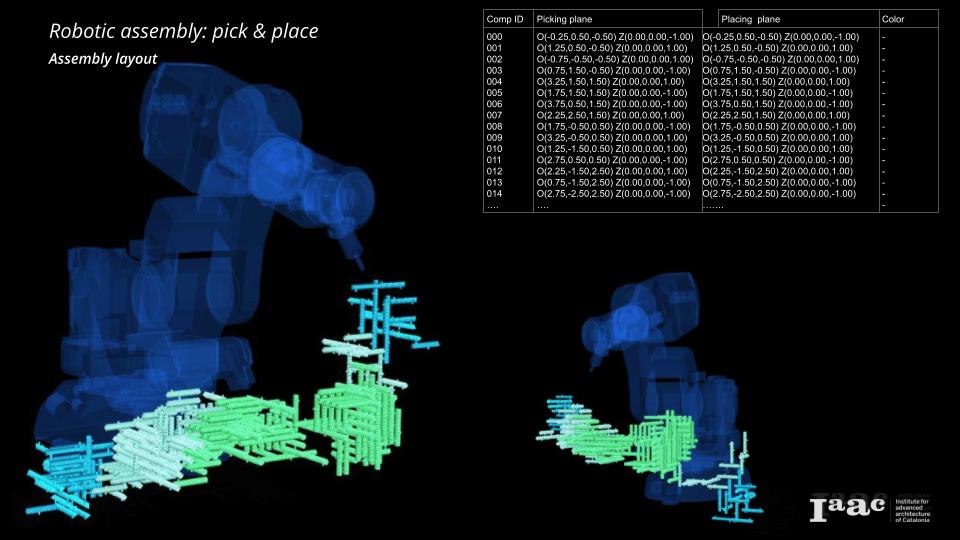
The role of computational logic in iterative processes is fundamental in the world of computer programming. It shapes algorithm design, defines logical flow within loops, ensures robust error handling, and drives optimization strategies. The ability to think logically, make informed decisions, and optimize processes is the main distinction between soft skilled programmers. Computational logic empowers professionals to address complex challenges, create efficient software, and build robust systems capable of handling diverse tasks effectively.
